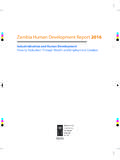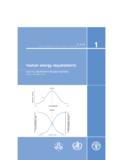Transcription of Ken Wilber’s Model of Human Development: An Overview
1 ken wilber s Model of Human development : An Overview Compiled by Paul M. Helfrich September 4, 2007 wilber s Model of Human development 1 foreword This compilation is a work in progress that outlines ken wilber s integral theory to date. There have been four main phases, and an emergent Phase-5, in a body of work that covers almost thirty-five years, over twenty books, and numerous articles. As I researched them, it became clear that these phases are, in fact, a great way to introduce his overall system a sort of wilber 101. The main challenge was what concepts to leave out so that what remained adequately reflects the foundational core.
2 The following excerpts, mostly in wilber s own words, help the theory unfold in its own developmental fashion. As always, it s critical to study the books for all the gory details. Often times, subtle details, clarifications, and novel concepts are found in various endnotes, some reaching fifteen or more pages in length. There are also three websites that provide additional resources for further study. The wilber site on Shambhala, his main publisher: The wilber site on: Frank Visser s Integral World: Exploring Theories of Everything website: Kenneth Earl wilber (b. 1949), the integral philosopher and psychologist, resides in Denver, Colorado.
3 He is a founding principal of the Integral Institute in nearby Boulder. He traces his family lineage back to Meriwether Lewis (of the Lewis and Clark Expedition), was born an Air Force brat in Oklahoma City, OK, is around 6 5 tall, tips the scales around 185 pounds, has a penchant for dogs, Red Bull, and chocolate, and considers himself a pandit, or scholar/teacher; a concept derived from the Hindu tradition of jnana yoga. During his career as a theorist, his principal focus has been on consciousness evolution, developmental studies, and integral Integral means balanced, inclusive, and comprehensive. When applied to a research methodology it means that one aspires to cover as many perspectives as possible.
4 As such, wilber s Integral metatheory is a postmodern attempt to balance all the authentic methods and validity claims in use today to show how each covers a true but partial slice of the larger pie of Human consciousness. By postmodern, it seeks to include the very best practices and critiques of traditional, modern, and postmodern philosophers, scientists, mystics, and well, everyone with deep insight into the Human experience. At its best, Integral metatheory has the potential to show how science, art, spirituality, and everything in-between provide valid insights that, when taken as a whole, provide the most complete view a more true and less partial view of Human consciousness currently available.
5 wilber is still busy developing his metatheory, and his cogent critics are a key source of constructive and deconstructive feedback that co-creates important refinements. Thus, they form a mostly cooperative, if sometimes raucous, community that is jointly developing the overall theory. Still, many wilber critics fail to formulate deeply coherent critical responses because they are not familiar with the entirety of his work. Since he maps what he calls the Kosmos, after Pythagoras, from dust to 1 Biographical material is from Reynolds (2004, 2006), Visser (2003), wilber (1997, 2003), and personal communication with the author.
6 wilber s Model of Human development 2 Deity, his Integral metatheory covers an unprecedented array of ideas, disciplines, and ways of knowing East and West, North and South, premodern, modern, and postmodern. Still, that does not mean it is complete in any way, or tells us what or how to think. There are plenty of gaps to be filled in and room for further refinements. Thus, the goal of Integral metatheory is help us take an Integrally informed approach to our own disciplines to test out the waters directly. While wilber used the term a theory of everything, he makes no claim to explain everything in any final sense. The theory of everything is indeed a noble concept, but is also an oxymoron because it can never fully explain the creative novelty or emergence of evolution s next surprising development .
7 Even though wilber used that moniker in a popular book ( wilber , 2000), it appears to be a move calculated to introduce his Integral metatheory into the flatland dominated by monological sciences and philosophies, particularly new physics, quantum mechanics, and system theory. The latter fields still maintain a tenacious claim as sole purveyors of the theory of everything. But they tend to explain only the most basic level, the physical, and thus least conscious in evolutionary terms. For instance, biological life forms are more conscious than the lifeless quantum fields of a nebula. Though both contain varying degrees of interiority, a bacterium is more conscious than a nebula because it is a more complex and self-replicating lifeform.
8 In turn, a Human being, the pinnacle of consciousness evolution on our planet to date, is more complex, self-reflexively aware, and thus more conscious than a bacterium. Therefore, for what follows, an integral theory of consciousness is a more accurate term than a theory of everything. wilber s Integral metatheory is named AQAL (pronounced ah-qwul ), which stands for all quadrants, levels, lines, states, and Along with the self-system that integrates and navigates them, these six core organizing principles, or orienting generalizations, are analogous to the notes of a musical scale in relation to a symphony.
9 Just as Richard Wagner s epic Ring Cycle of four operas is in the key of E-flat Major, we can describe wilber s Integral metatheory as being in the key of AQAL. Though Wagner s Ring Cycle employs many different musical keys, they all ultimately have a fundamental relationship to the main scale tones of E-flat Major. The same is true with AQAL metatheory, even though wilber s writings cover a wide range of ideas, fields, and ways of knowing, they all fundamentally relate to the six core organizing principles of quadrants, levels, lines, states, types, and the self-system. wilber was the first to divide his work into four main phases when he included retrospective commentary and endnotes in The Eye of Spirit (1997).
10 Scholars and critics have subsequently built on that foundation to identify an emerging fifth phase. In a nutshell, Phase-1 and Phase-2 emphasized the importance of levels of Human development , and the individual and collective interiors (two of the four quadrants). Phase-3 added developmental lines ( , Gardner s multiple intelligences) states (waking, dreaming, deep sleep, altered, meditative, etc.), and the self-system (locus of identification, navigation, and integration). Phase-4 was the first mature formulation of AQAL metatheory, also called the Integral Operating System (IOS). AQAL added the four quadrants (individual, collective, interior, and exterior perspectives) and types ( , male/female voices, Myers-Briggs, etc.)







